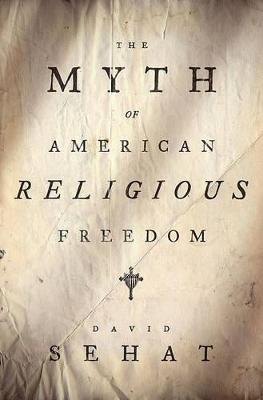In the battles over religion and politics in America, both liberals and conservatives often appeal to history to support their position. Liberals claim that the Founders separated church and state. But for much of American history, David Sehat writes, Protestant Christianity had an intimate connection with the state. Yet the past was not the Christian utopia that conservatives imagine either. Instead, a Protestant moral establishment prevailed, using government power to punish free thinkers and religious dissidents. In The Myth of American Religious Freedom, Sehat provides an eye-opening history of religion in public life, overturning our most cherished myths. Originally, the First Amendment applied only to the Federal government, which had limited authority. On the state level, the Protestant moral establishment ruled, using moral laws to uphold religious power that grew with time. After 1820, Sehat shows, new state constitutions increasingly invoked the deity, and even existing constitutions were rewritten with religious language. This moral and religious orthodoxy, Sehat argues, was enforced against Catholics, Jews, Mormons, agnostics, and others. Not until 1940 did the U.S.
Supreme Court extend the First Amendment to the states. To trace the rise and fall of this Protestant establishment, Sehat focuses on a series of dissenters-abolitionist William Lloyd Garrison, suffragist Elizabeth Cady Stanton, socialist Eugene V. Debs, and many others. Shattering myths held by both the left and right, David Sehat forces us to rethink some of our most deeply-held beliefs. By showing the bad history used on both sides, he denies partisans a safe refuge with the Founders.
- ISBN10 0195388763
- ISBN13 9780195388763
- Publish Date 14 January 2011
- Publish Status Active
- Out of Print 17 September 2016
- Publish Country US
- Imprint Oxford University Press Inc
- Format Hardcover
- Pages 384
- Language English
